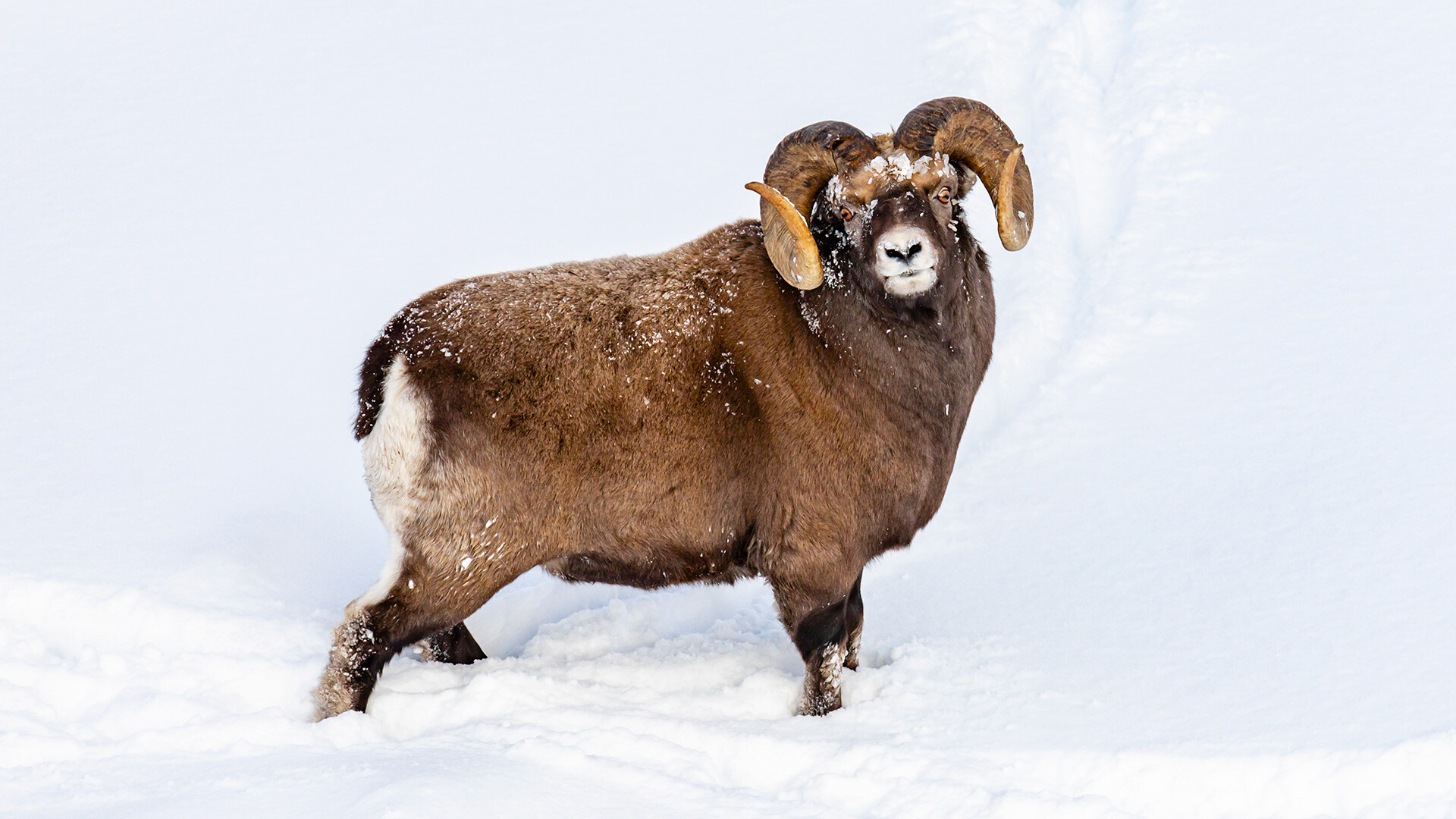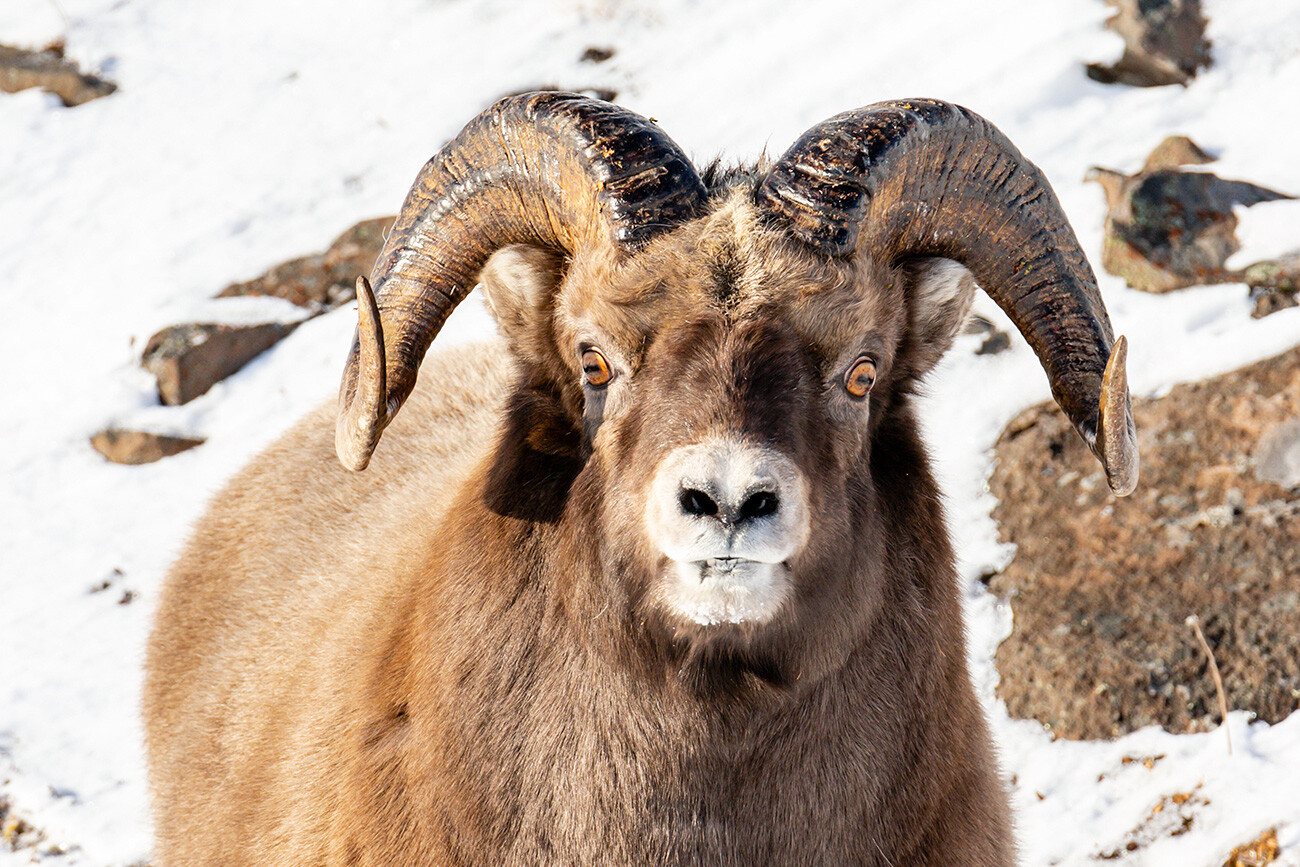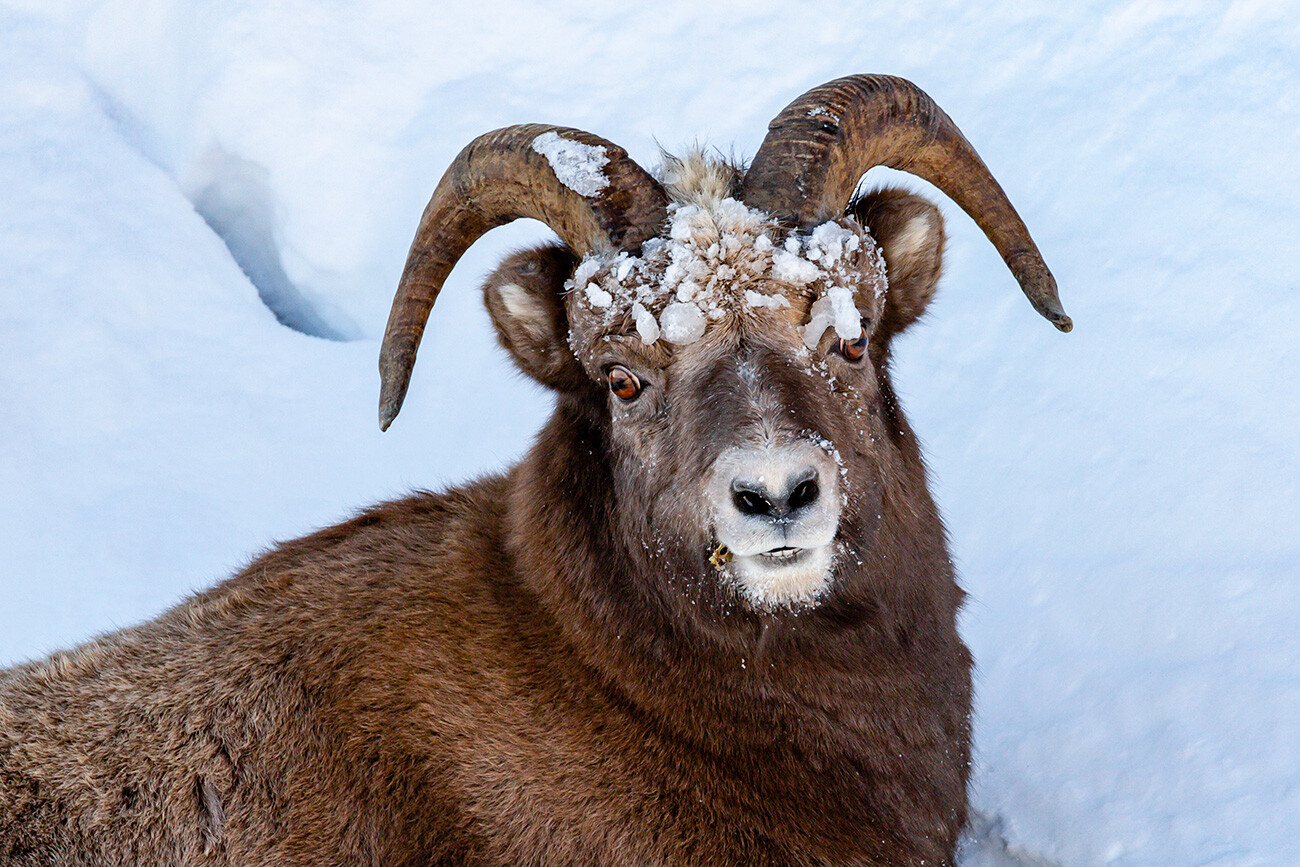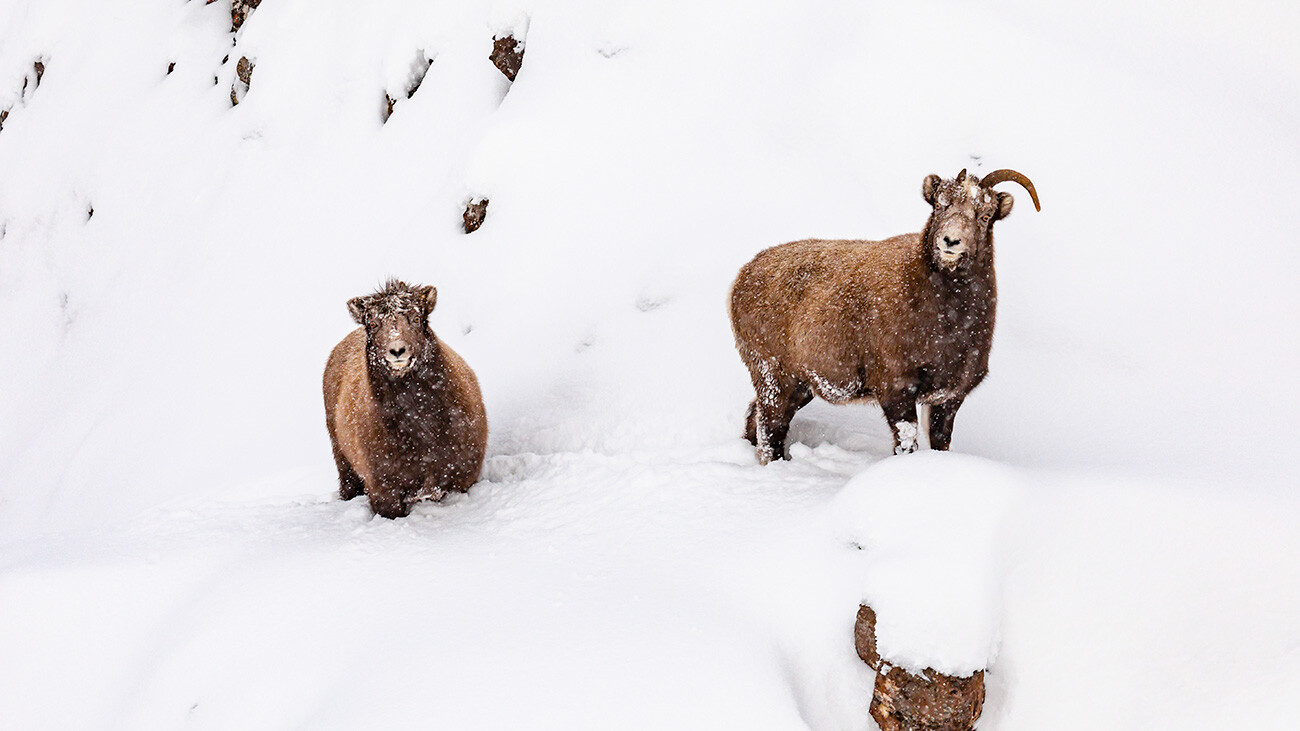
The Putorana Plateau is a giant mountain range far beyond the Arctic Circle, one of the most secluded in the world, where it is difficult for an ordinary person to reach. It is also famous for its incredible landscapes: Flat-topped mountains dotted with waterfalls and deep canyons.
The Putorana bighorn sheep, a subspecies of the Ovis nivicola (northern sheep), has found its home in these places. Surprisingly, its closest relatives are a thousand kilometers away from this region, in the north of Yakutia.

In Russia, snow sheep live mainly in Yakutia (locals call them ‘chubuka’), Kamchatka, Chukotka and Sakhalin. More than 70,000 inhabit the mountainous landscapes of Eastern Siberia and the Far East. Relatives of bighorn sheep, meanwhile, live both in North America and Asia.
Almost everywhere, populations of snow sheep are quite solitary, they choose secluded rocky landscapes to live in. But, the most amazing subspecies of bighorn sheep was found on the Putorana Plateau (the north of Krasnoyarsk Krai). This is the western border of their habitat, which is more than a thousand kilometers away from the Yakut population.
Scientists believe that they arrived about 12,000 years ago, when, due to climate warming, forests began to grow in the north of Eastern Siberia, which deprived the bighorn sheep of pastures. But, they adore the rocky landscape of the Putorana mountain landscape - in case of danger, they hide in the rocks.
In appearance, they are not very different from their relatives: stocky, with powerful curled horns and white fur on their hind legs. By the way, their horns grow throughout their lives and, by them, you can distinguish a male from a female. Males have thick horns, while females have thin horns.

Putorana bighorn sheep are listed in the Red Book of Russia as animals with declining numbers. To preserve this subspecies, the Putorana Nature Reserve was created in 1988. Hunting them is prohibited there.
It is extremely difficult to calculate the exact number. According to some sources, they are about 1,500, according to others - up to 6,000. Herds of 20 rams are considered large. They are found in limited territories of the plateau, but there is no exact information about the boundaries.
The number of sheep is also influenced by predators (wolves, wolverines) and other natural factors.

Scientists have drawn attention to the interesting "family traditions" of Putorana show sheep.
Males and females live separately for most of the year. Young males have their own herds, which consist of individuals related to each other. Brothers, cousins - in general, bighorn sheep are no strangers to each other.
And, in November-December, they have a "wedding season": they sort things out at "tournaments" where they fight with horns. The winner gets the right to court the female. By the end of spring, couples usually give birth to kids. Young mothers form "maternal herds", while young fathers, having fulfilled the call of nature, return to their usual life.
Usually, in the wild, "families" consist of just a mother and her kids. But, in herds of Putorana bighorn sheep, scientists have also found "grandmothers". They watch both their kids and their own and even another sheep’s grandkids. This may be due to harsher conditions than other bighorn sheep habitats. Young mothers learn how to handle their kids and adopt this experience.
Dear readers,
Our website and social media accounts are under threat of being restricted or banned, due to the current circumstances. So, to keep up with our latest content, simply do the following:
If using any of Russia Beyond's content, partly or in full, always provide an active hyperlink to the original material.
Subscribe
to our newsletter!
Get the week's best stories straight to your inbox